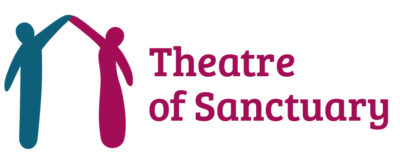George Monbiot at The Halls 27/02/20 – YNAC review
On the 27th February, I head down to St. Andrew’s Hall, ready for the sold-out George Monbiot event hosted by Norwich Arts Centre. The volume of people is staggering; pitching up ten minutes before doors open, I’m confronted by a long line snaking its way out of the hall. But in a world where we are increasingly aware of – and concerned about – climate change, it should have been no surprise that the turn-out would be so huge.
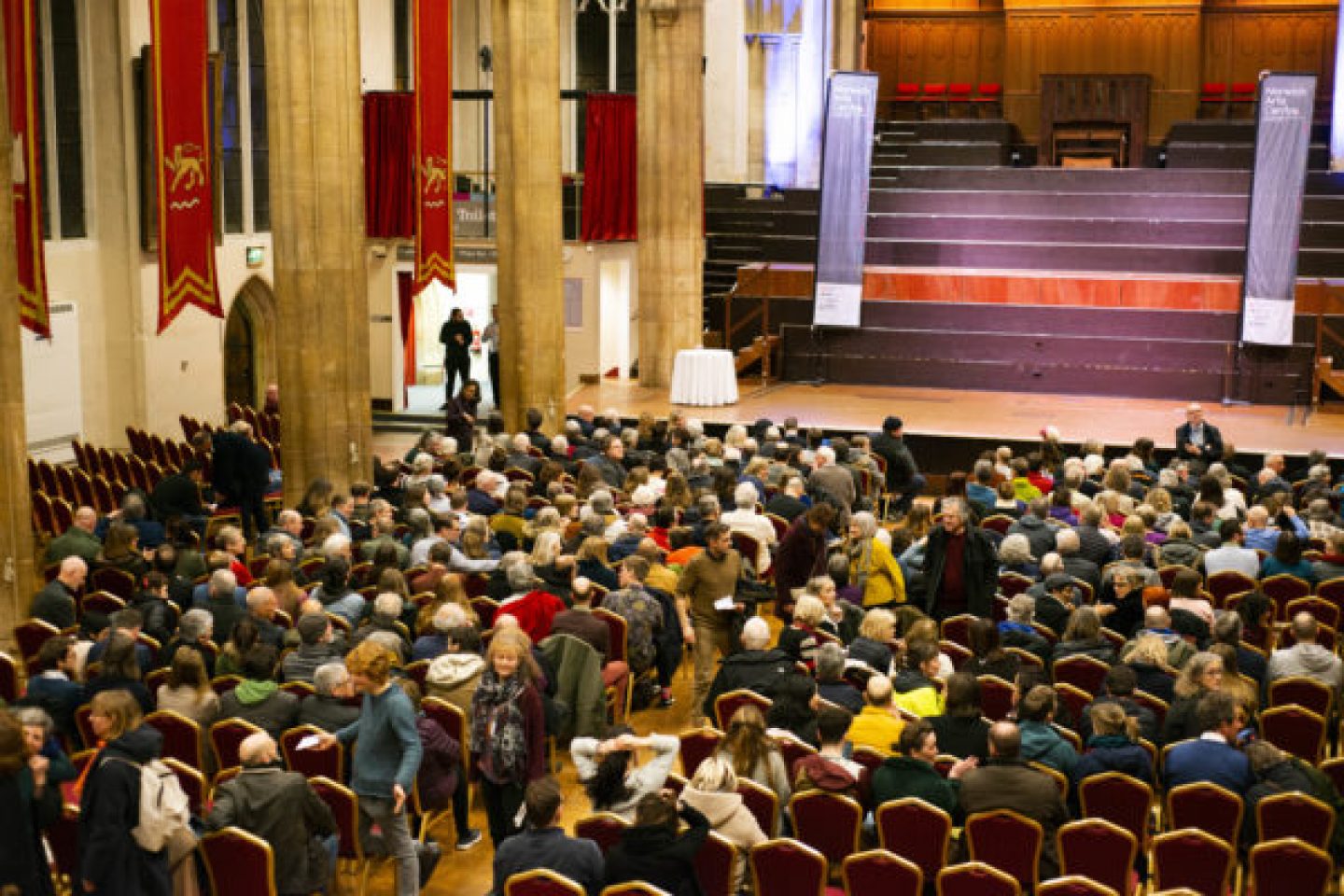
On the 27th February, I head down to St. Andrew’s Hall, ready for the sold-out George Monbiot event hosted by Norwich Arts Centre. The volume of people is staggering; pitching up ten minutes before doors open, I’m confronted by a long line snaking its way out of the hall. But in a world where we are increasingly aware of – and concerned about – climate change, it should have been no surprise that the turn-out would be so huge.
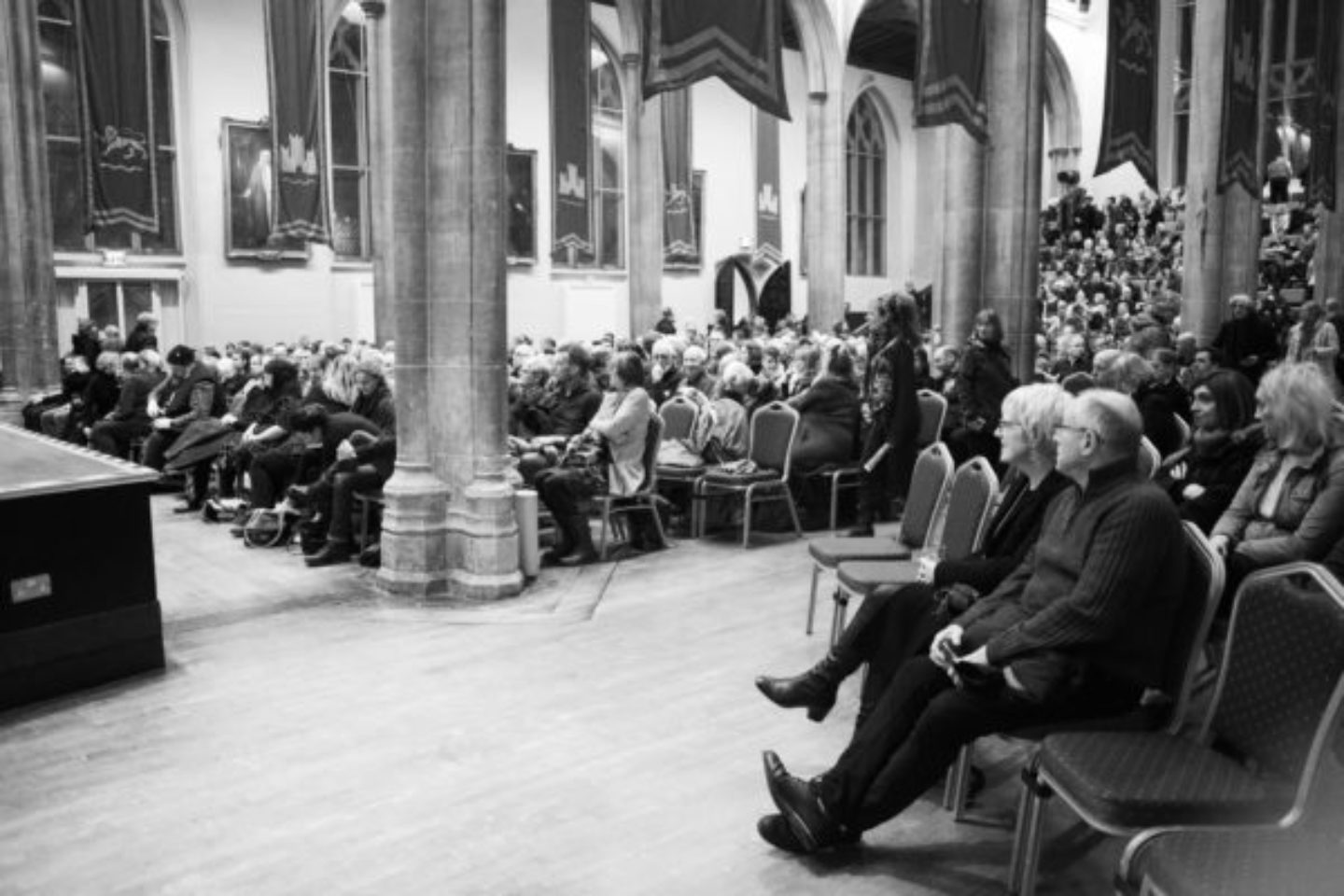
Going in, I’d heard a little about George Monbiot – scrolling through Facebook some months ago, I’d seen his video collaboration with Greta Thunberg that went viral, with the pair explaining the climate crisis, putting forward suggestions of how we can tackle it. Aside from his work as an environmental campaigner, George is an author and a columnist for the Guardian. He’s engaged and politically active, a climate champion. This talk promises to be a real trip through politics, economics, and history, with George guiding us through complex thinking, landing on ways that we can help to mitigate the effects of climate breakdown. We buckle up, ready for the ride.
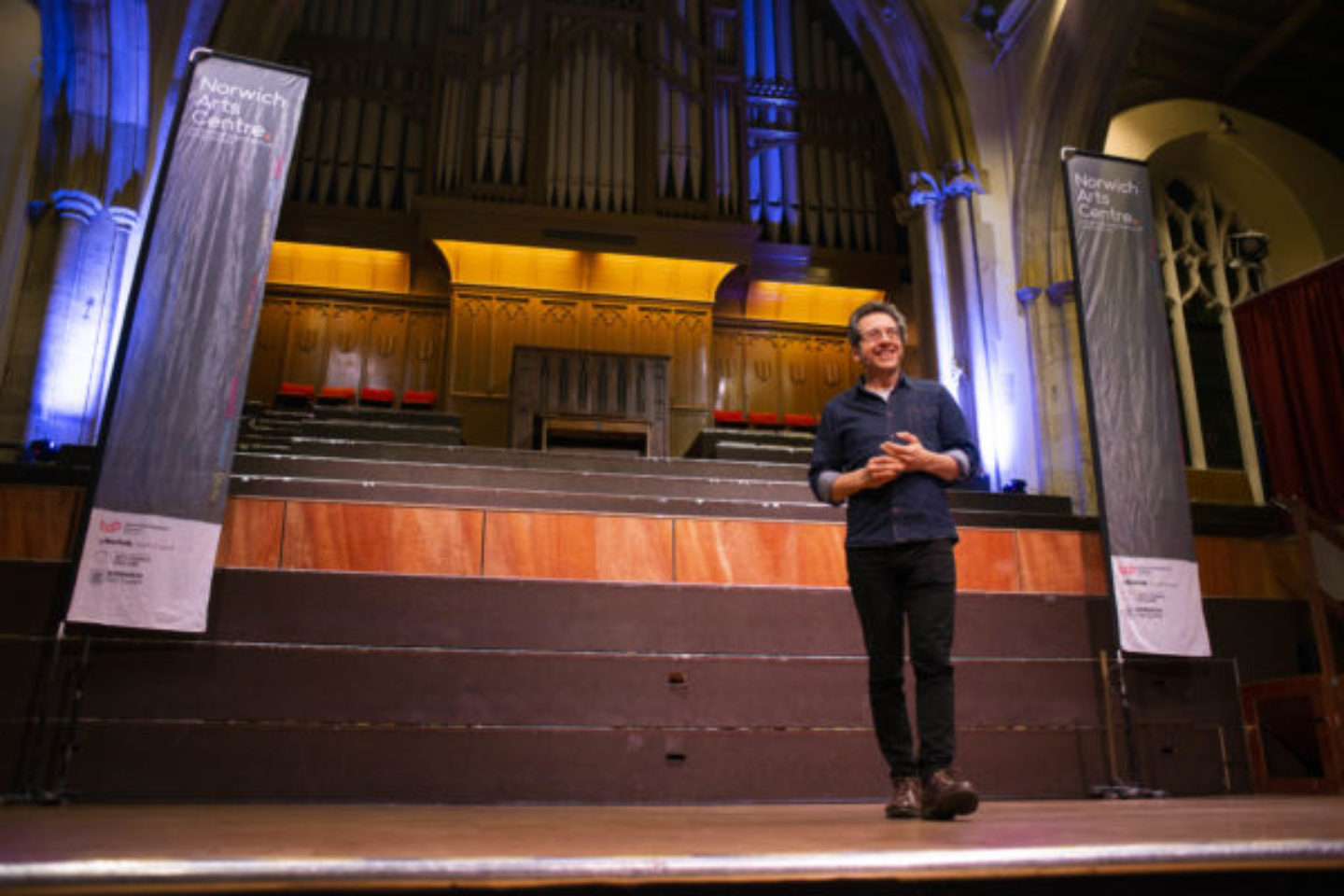
Evident from the outset is George’s passion for the subject. He is so engaging, bounding around the stage, making us all laugh easily, despite the heaviness of the topics in discussion. He makes reference to the Norwich Western Link – the new road proposed to be built right through the Wensum River Valley – an acknowledgement of a local environmental/political issue that I feel is deeply appreciated by the audience.
At the heart of it all, George is advocating for system change. Capitalism, he argues, is the root of many of the issues we’re facing. Our world is built on the principal of ‘perpetual economic growth’, a system that can’t possibly be sustainable on a finite planet with finite resources. He points out the absurdity of how numbers in a bank account – economic wealth – can give those people the right to consume natural ‘common’ wealth (deforestation of the Amazon Rainforest to make way for plantations and ranches, the destruction of our oceans in the search for fossil fuels, etc). But fuelling this is the idea perpetuated by capitalism capitalism that we are all “temporarily embarrassed billionaires”, promising us that we can all achieve luxury, if only we work hard enough. We are still stuck in a political system invented centuries ago. And if we don’t shift it, things can’t possibly get better.
George then goes on to talk about the three hours he’d spent the day before with Greta Thunberg, the now 17-year-old Swedish climate activist who kick started the youth strikes. This international climate strike movement is an example of non-violent direct action, which he claims is necessary in order to catalyse change. According to George, civil disobedience is more fundamental to democracy than parliaments are, citing the many examples of where human rights have been gained as a direct result of this kind of action.
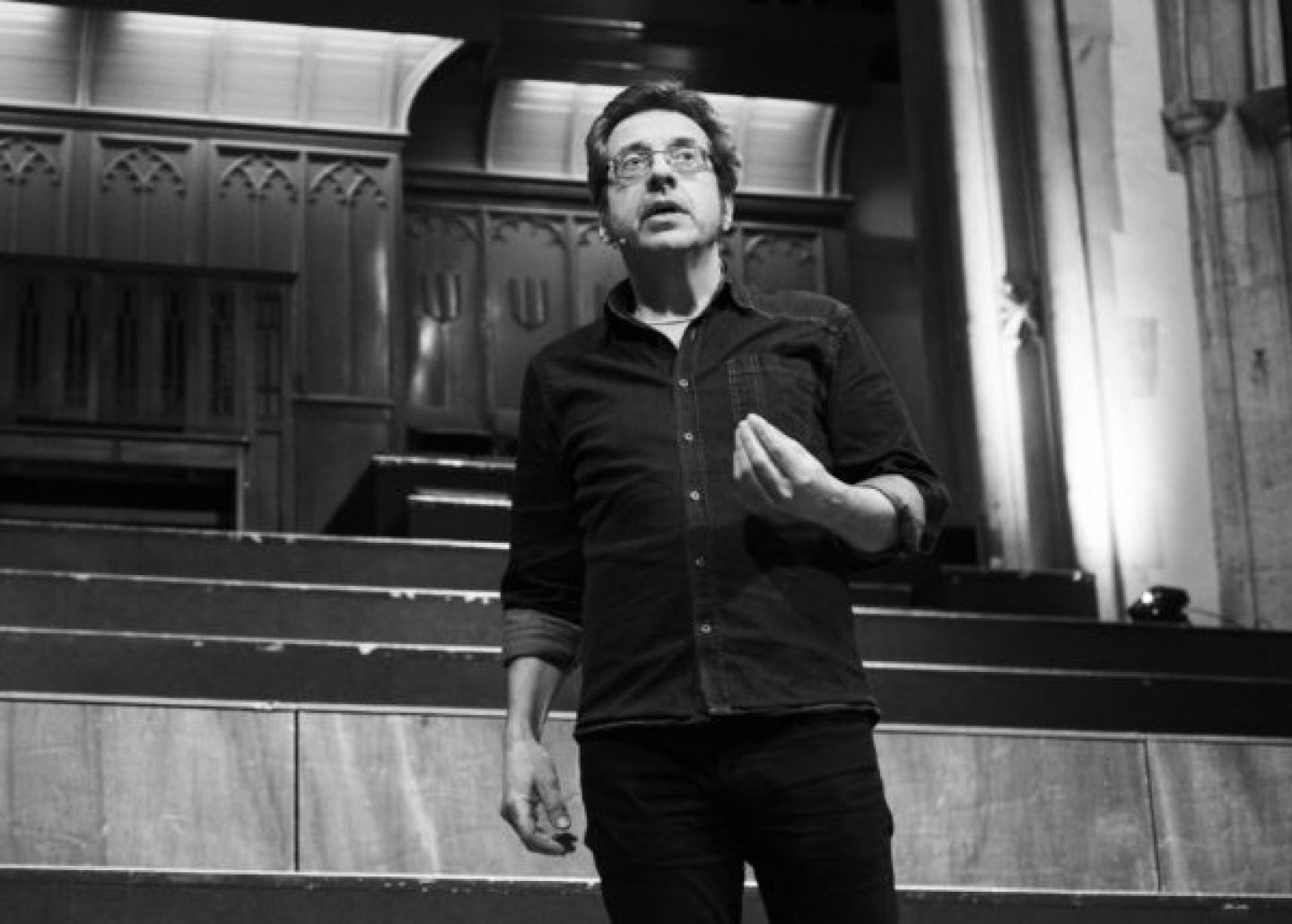
We explore potential solutions, many of them based in the community, aiming at developing a sense of shared ownership. He introduces us to participatory budgeting, a system giving the community the responsibility of deciding where and how the money is spent. He suggests that genuine community ownership of ‘commons’ (public spaces, facilities, and resources), where the product is shared equitably, is one way to lighten the load on our planet and improve our relationships with the people around us.
As the talk nears its end, George shifts the focus to what we can do about it: the starting point is to mobilise, generating movements big enough to create change. In order to do this, we have to work together, uniting to fight for a common goal. He encourages us to join Extinction Rebellion, to take part in the strikes, to weigh in on the Western Link Road.
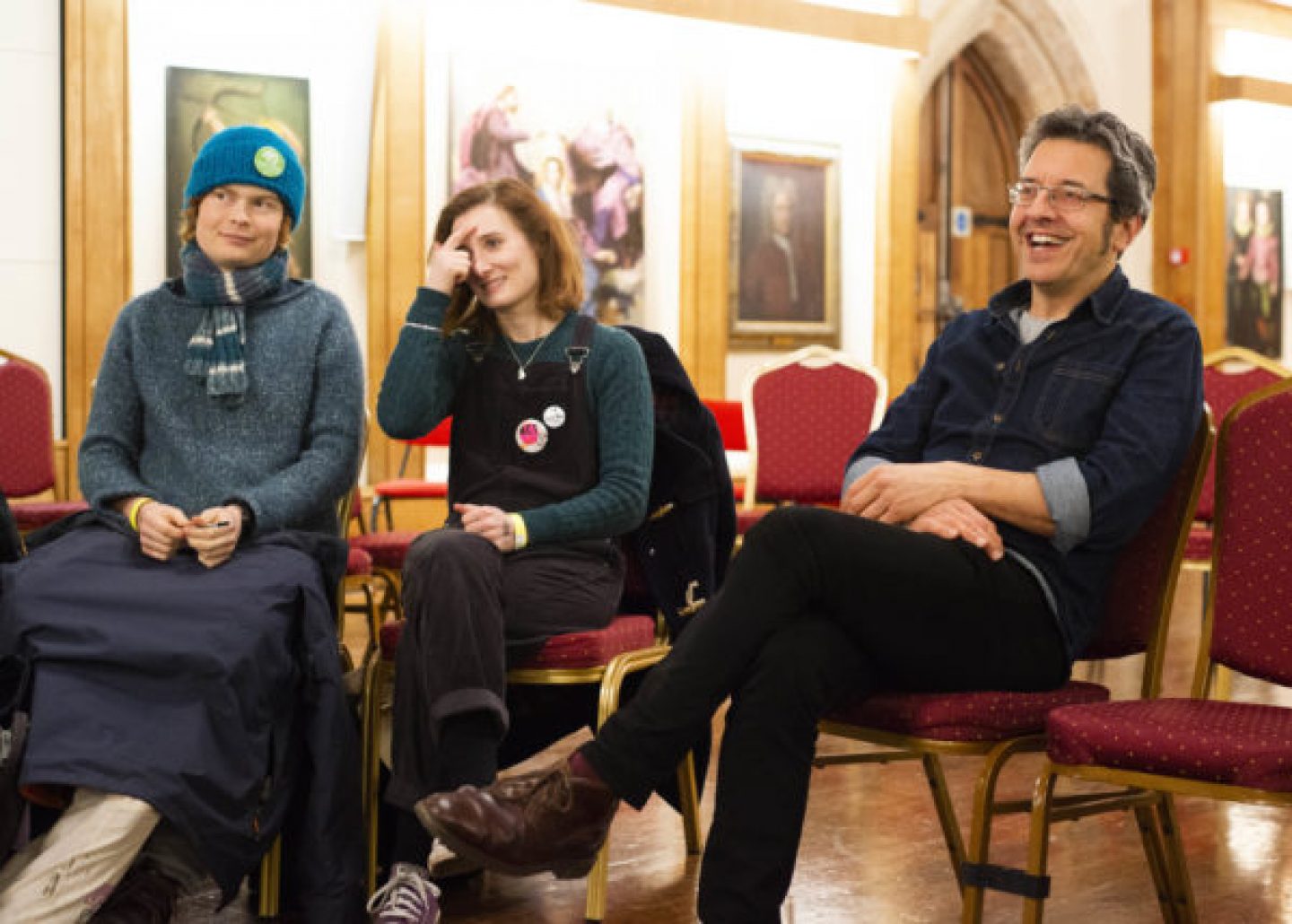
After a long, thunderous applause, he takes questions, completely unruffled even by those that challenge his point of view. He deals with social integration, how to respond to climate deniers, and whether we should transition to a plant-based diet – among a whole slew of things thrown his way. He considers each point made carefully, answering calmly and deliberately, taking genuine delight in the challenges he’s presented with.
That wrapped up, I join the workshop. Downsizing from several hundred people to under fifty, we draw our chairs into a close circle and George introduces the session, a democratically-led discussion that uses his talk as a springboard. As the voices emerge, he takes a back seat and I’m amazed by how smoothly things go for the most part, with the majority of attendees being respectful, conscious of letting others speak. Little intervention from George is needed. Together, we discuss social media, exploring how it manipulates us, but also sharing anecdotes of how it has been a tool for good and a creation of social change. Someone asks how best to get people with low incomes involved in climate action, and the consensus seems to be that empowerment through education is a good place to start. We begin to bounce around ideas of how we can create system change at a local level, with people sharing their visions for Norwich, describing the projects they’re working on already. The response is enthusiastic, hopeful.
I leave the evening buzzing, my head full of ideas and questions, armed with new knowledge. I feel empowered. And I feel so proud of this city for filling this hall, for listening, for sharing, for caring.




